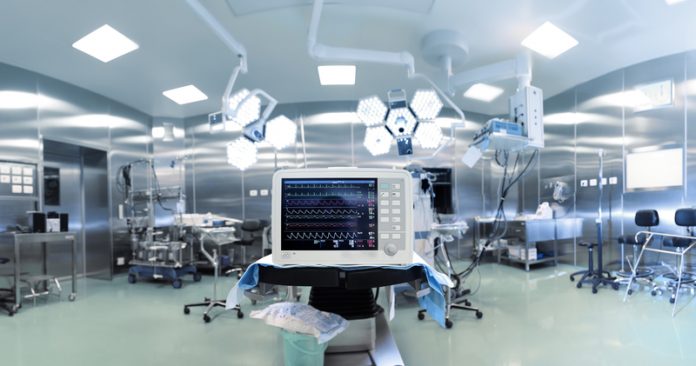Jonathan Evans, communications manager at the Association of British Healthcare Industries explores the broad and diverse MedTech sector as it stands today
The Medical Technology (MedTech) sector is broad and diverse. There are thousands of products on the market, from wound care dressings, needles and syringes, pacemakers, knees and hips, MRI scanners and blood pressure monitors. The products made are integral to the delivery of modern healthcare and the chances are, we will all need MedTech at some point throughout our lives.
The sector is driven by innovation and underpinned by strict regulation. Products are developed to target a specific need, be it the need to do something faster or more efficiently, cleaner or more cost-effectively.
In the UK alone, MedTech employs close to 100,000 people, generating a collective turnover of £17 billion. Representing this sector is ABHI, the MedTech trade association. ABHI and its members champion the use of safe and effective MedTech, to support health system efficiency and crucially, high-quality patient outcomes. When we consider the advancements in technology, MedTech has the potential to revolutionise the delivery of healthcare as we know it.
In the global context for healthcare, the UK’s differentiating factor is the National Health Service (NHS). As the fifth largest employer in the world, it is comfortably the biggest single-payer health system. It can be a superb test-bed for innovative technologies, yet the system is under great pressure. With an ageing population comes a steady rise in chronic conditions and for some time now, funding for the NHS has not matched the complex health needs of the country.
With tight budgets, there is a natural shift to cost-saving measures. Unfortunately, this often means buying the cheapest available product. However, the cheapest product does not always mean the best overall value. A product that has a longer shelf life, is more durable and of a higher quality, may cost fractionally more per unit, but will have better outcomes for the patient or system. This, in turn, leads to far greater cost savings in the long run. Added to this is the issue of patient safety. When it comes to providing safe and effective solutions to patients, results should be driven, first and foremost, by outcomes.
This view was recently echoed by the former Medical Director of NHS England, Sir Bruce Keogh. In a 2017 interview with the Daily Telegraph, he said too many hospitals were putting cost-cutting ahead of patient safety. “People accept that their disease has risks, they accept that the treatment may carry some risks. What they should never have to accept is that the way we design and deliver our services adds to that risk,” he said.
Added to the NHS’s challenges, the impact of Brexit must be monitored closely. MedTech products, like those in many other sectors, rely on international supply chains. Meaning that products are moved to different countries for material sourcing, manufacturing, packaging and sterilisation. It is not uncommon for a “British” product to have touched several jurisdictions before reaching the market place.
One ABHI member tells us that just one of their products crosses eight borders before completion. For suppliers to be able to move their products across borders, there needs to be practical measures in place to ensure the supply of products to a patient is uninterrupted. Without this, there is a very real danger of delayed supply, which will hit patients the hardest.
For patients’ to be able to access the best in cutting-edge technology, that is not just safe and effective, but also provides genuine value to the system, collaboration will be key. There is a real opportunity for the NHS to capitalise on manufacturing advances. It has the wide-reaching platform to create a collaborative environment where industry and the health system work together to advance the provision of healthcare and safety for patients.
Naturally, there is always room for safety improvements, but the MedTech industry seeks to work closely with patients to better understand the factors which increase adverse events and to develop solutions that are patient-centered. In every step of the pathway, MedTech can help. Prior to admission into a hospital with advanced diagnostic technologies, right the way through to discharge, where patient monitoring devices play a significant role.
Jonathan Evans
Communications manager
Association of British Healthcare Industries
Tel: +44 (0)20 7960 4360











